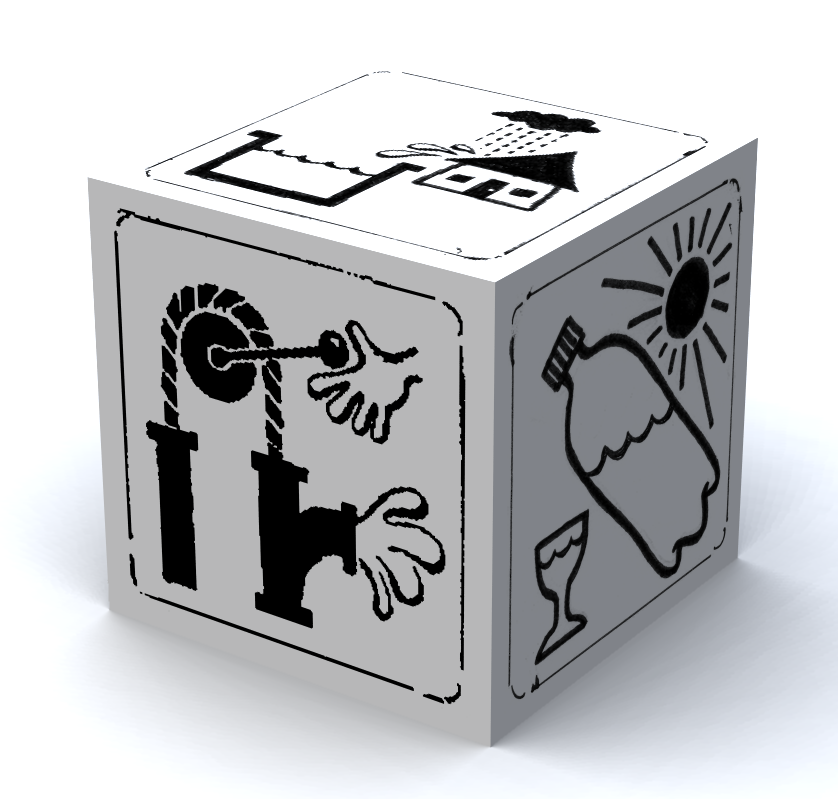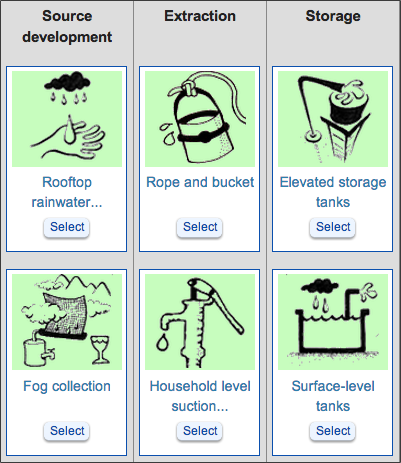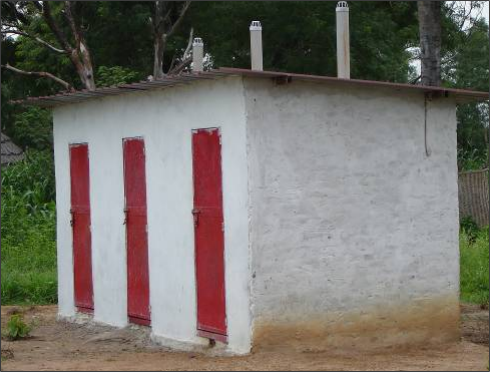Difference between revisions of "Main Page"
| Line 34: | Line 34: | ||
<h2 style="margin:0; font-size:130%; text-align:left; color:#535353; padding:0.2em 0.4em;">Sustainability Portal - <font color=#FF0000>NEW!</font></h2> | <h2 style="margin:0; font-size:130%; text-align:left; color:#535353; padding:0.2em 0.4em;">Sustainability Portal - <font color=#FF0000>NEW!</font></h2> | ||
|- | |- | ||
| − | |<div class="floatleft" align=left >{{Icon|file=sust portal icon.png|alt= | + | |<div class="floatleft" align=left >{{Icon|file=sust portal icon.png|alt=Sustainability Portal|width=140px|link=Sustainability Portal}}</div> The [[Sustainability Portal|Sustainability Portal]] contains information on numerous sustainability frameworks, tools, and methods, using the F.I.E.T.S approach. |
| | | | ||
! | ! | ||
| Line 56: | Line 56: | ||
|- | |- | ||
| | | | ||
| + | [[Image:latrine.png|right|100px|link=Communal Latrines]] | ||
* '''NEW ARTICLE PAGE: [[Communal Latrines|<font size="2">Communal Latrines</font>]]''' - This article covers the topic of communal latrines, also called institutional or school latrines. Much of the material in this article is based on project successes in the Sudan. This is a portion of the document of Technical Guidelines, outlining best practices for the development of the 14 types of water supply and sanitation facilities in the Sudan. Several of them are communal (multi-user) latrines. | * '''NEW ARTICLE PAGE: [[Communal Latrines|<font size="2">Communal Latrines</font>]]''' - This article covers the topic of communal latrines, also called institutional or school latrines. Much of the material in this article is based on project successes in the Sudan. This is a portion of the document of Technical Guidelines, outlining best practices for the development of the 14 types of water supply and sanitation facilities in the Sudan. Several of them are communal (multi-user) latrines. | ||
| − | + | [[File:sust portal icon.png|right|100px|link=Sustainability Portal]] | |
* '''NEW PORTAL:''' [[Sustainability Portal|<font size="2">'''Sustainability Portal'''</font>]] - [http://www.irc.nl/ IRC] and Akvopedia have teamed up to produce an all new [[Sustainability Portal|Sustainability Portal]] based on the Dutch WASH Alliance [http://www.washalliance.nl/fiets-strategy/ F.I.E.T.S. principles] of financial, institutional, environmental, technological, and social sustainability. Included are the 10-part [[Sustainability Frameworks and Tools|Triple-S building blocks]] from IRC and other sustainability frameworks. With over 50 new article pages and many more sustainability tools, slideshows, and videos... water and sanitation project members can now think about their WASH system's longevity with confidence. | * '''NEW PORTAL:''' [[Sustainability Portal|<font size="2">'''Sustainability Portal'''</font>]] - [http://www.irc.nl/ IRC] and Akvopedia have teamed up to produce an all new [[Sustainability Portal|Sustainability Portal]] based on the Dutch WASH Alliance [http://www.washalliance.nl/fiets-strategy/ F.I.E.T.S. principles] of financial, institutional, environmental, technological, and social sustainability. Included are the 10-part [[Sustainability Frameworks and Tools|Triple-S building blocks]] from IRC and other sustainability frameworks. With over 50 new article pages and many more sustainability tools, slideshows, and videos... water and sanitation project members can now think about their WASH system's longevity with confidence. | ||
| − | + | [[Image:f-sust icon.png|right|100px|link=Community Based Savings]] | |
* '''NEW ARTICLE PAGE:''' [[Community Based Savings|<font size="2">'''Community Based Savings'''</font>]] - Community-based saving is a microfinance model that is considered to be an effective method for financing projects in sustainable sanitation and water management. This is an effective method for saving a small amount of money by organising or joining a saving group of up to 25 people. These people might be colleagues, friends or neighbours coming from the same community. The method is very simple and easy to implement. | * '''NEW ARTICLE PAGE:''' [[Community Based Savings|<font size="2">'''Community Based Savings'''</font>]] - Community-based saving is a microfinance model that is considered to be an effective method for financing projects in sustainable sanitation and water management. This is an effective method for saving a small amount of money by organising or joining a saving group of up to 25 people. These people might be colleagues, friends or neighbours coming from the same community. The method is very simple and easy to implement. | ||
Revision as of 04:50, 20 March 2014
|





